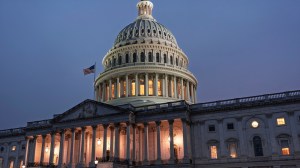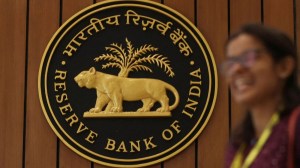Abbas out of Arafats shadow
With demand for permanent UN membership,Mahmoud Abbas is now the face of the Palestinian national movement that was once embodied by Yasser Arafat
Right in the heart of the West Bank city of Ramallah,Palestinian workers are putting the finishing touches to a new presidential palace. The lawn outside is carefully tended,and dotted with olive trees. The white stone building exudes confidence and solidity. The ensemble is designed to underline a clear message: here sits the president of a sovereign,independent state.
In truth,of course,the man who is scheduled to move in later this year has no state to govern. For the time being,Mahmoud Abbas is merely the leader of the transitional Palestinian National Authority,a weak and financially crippled body with limited powers. Every time he wants to leave the city,he has to cross an Israeli checkpoint and pass below a string of Jewish settlements,built on the very land he claims for a future Palestinian state.
Yet for all the frustrations of the past,this week has brought fresh hope to the long Palestinian quest for statehood and independence. When Abbas called on the UN on Friday to support his cause and finally admit Palestine as a full member state,it was,he knew,an audacious diplomatic gamble. It was also the moment that the chain-smoking quiet man of Palestinian politics emerged once and for all from the shadow of Yasser Arafat,the leader who for so long embodied Palestines dream.
Like so many Palestinians,his life is punctuated by the titanic events of the regions troubled history. His family left their home in Safed,an ancient hilltop town in the Galilee,during the 1948 Arab-Israeli war,in the stream of Palestinian refugees who were driven away or fled from advancing Israeli forces. The deep feeling that he would like to come back,that is in his heart, says Marwan Abdelhamid,a life-long friend and former adviser,who grew up with Abbas in Safed and fled with him. But it is his policy and his conviction that,for the sake of our children and grandchildren,Safed now belongs to Israel. We have to recognise that.
After their escape from Palestine,the Abbas family settled in Damascus,where the future Palestinian leader went to school and studied law. From the Syrian capital,he moved to the Gulf,where he met Arafat,the founder of the Fatah party and the future chairman of the Palestine Liberation Organisation,and formed a relationship that was to shape his,and Palestines,future.
Abbas,76,gained prominence first as the adviser,negotiator and details man for Arafat. They had an effective,though not always harmonious,double act: the quiet,unassuming man in a suit and tie,and the brash,intensely charismatic leader,strutting the world stage in his trademark khaki uniform and keffiyeh headdress.
They worked well together in the hopeful years before and after the signing of the Oslo accords in 1993. But their relationship deteriorated as the peace process started to unravel,with Abbas criticising the violence and bloodshed that accompanied the second Palestinian intifada. Angered by the leaders increasingly erratic behaviour,Abbas resigned from the post of prime minister in 2003. He succeeded Arafat after his death one year later,assuming control of the PLO,the Palestinian Authority and the Fatah party simultaneously.
Abbas is known as the architect of the Oslo peace accords and the man who preached diplomacy and non-violence to the Palestinians earlier,and more fervently,than anyone else. Arafat famously declared in front of the UN that he held an olive branch in one hand,and a gun in the other. Abbas pointedly said this month he was travelling to New York with only the olive branch.
His commitment to negotiations helped turn Abbas into the acceptable face of the Palestinian national movement,even at the height of the bloody second intifada. Yet it also fuelled an image of weakness that has taken hold both among Palestinians and among Abbass Israeli interlocutors.
There have been instances when he was hesitant and ineffectual. He was,for example,notoriously unable to prevent the 2007 takeover of the Gaza Strip by the Islamist Hamas group,a failure that has split the Palestinians territorially and politically to this day. In his defence,Mohammad Mustafa,his economics adviser,argues that many critics mistake caution for weakness: He is very patient – the kind of person who listens,absorbs,analyses and,when necessary,reacts.
At home there is no shortage of Palestinian leaders who discovered to their detriment that behind the avuncular facade is a steely core. In the past two years,Abbas has taken on tough political rivals,triumphing every time. Even Salam Fayyad,his admired prime minister,keeps a notably lower profile these days,apparently bruised by a series of run-ins with the president.
In the treacherous world of Palestinian politics,Abbas is thought to value loyalty in his small entourage above all else. His aides provide advice,draft speeches and act as emissaries. At a recent briefing Saeb Erekat,the chief negotiator,not only whispered advice into his ear,but also stood ready to light a steady flow of cigarettes – despite his deteriorating health,he smokes up to two packs a day.
Abbas,who is married and has two surviving sons,Tareq and Yasser (a third died of a heart attack),says he has no desire to stay on in his posts,and most people are inclined to believe him. Unlike Arafat,who claimed to be married to the revolution,he has always maintained interests outside politics. He is an avid reader,and enjoys old Arab movies and traditional singers. He is also known as a devout Muslim,who reads the Koran every day and prays regularly.
A quiet retirement,however,is not in the offing. Some diplomats believe he enjoys the trappings of power and privilege more than his humble demeanour suggests. Admirers such as Abdelhamid,however,have another explanation. He will continue the struggle, he says,until we have a free Palestine.
Tobias Buck© 2011 The Financial Times Ltd



- 01
- 02
- 03
- 04
- 05




























